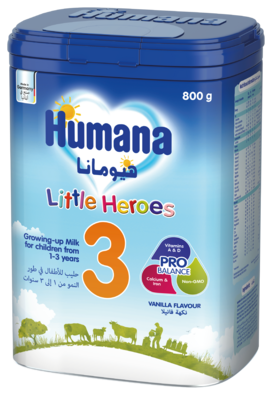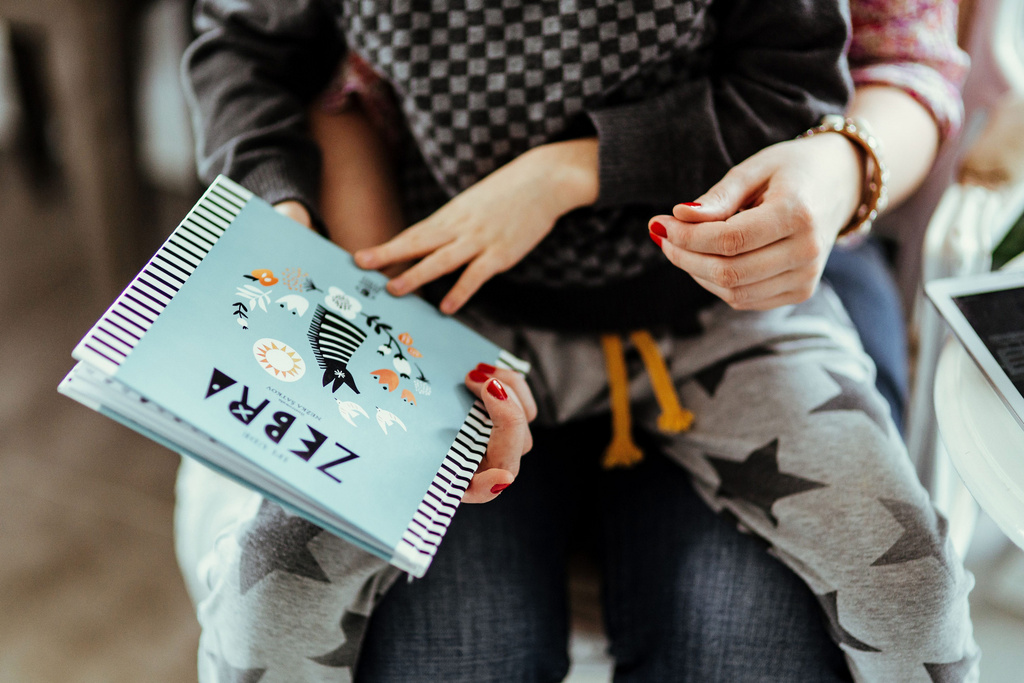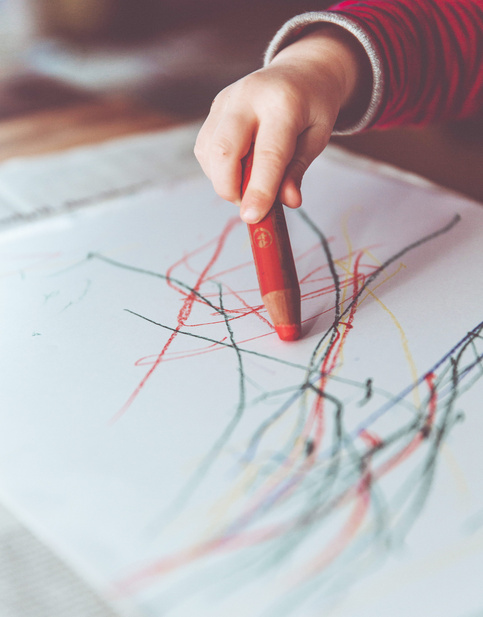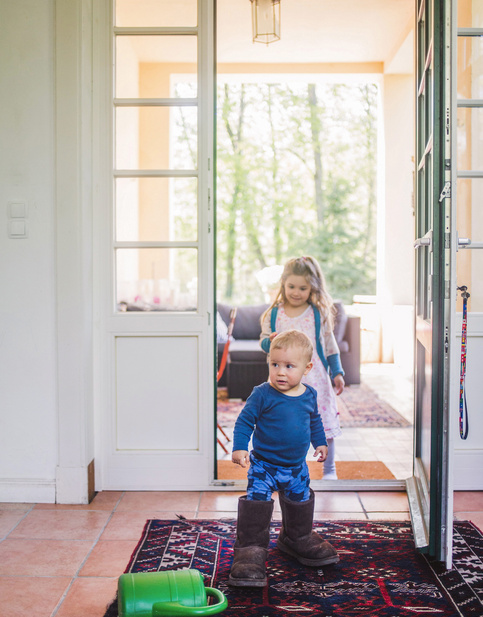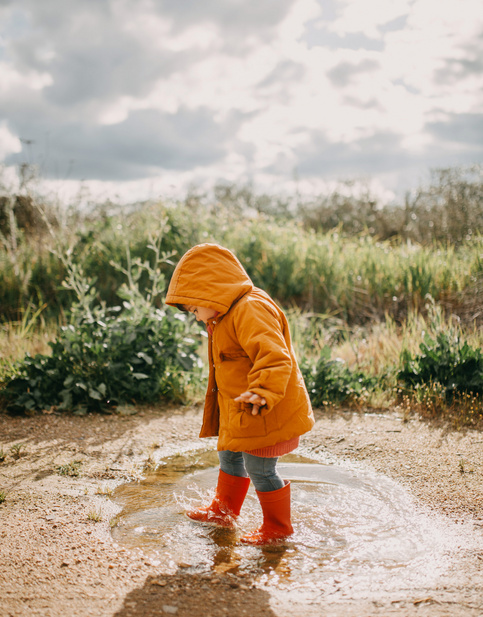For little babies: (Use your hands to guide your baby's to follow the actions)
For older babies and toddlers:
Wind the bobbin up, wind the bobbin up (Roll your hands one over the other)
Pull, pull (Move your hands away from each other in a pulling action)
Clap, clap, clap (Clap each time you say the word)
Wind it back again, wind it back again (Roll your hands in the other direction)
Pull, pull (Repeat pulling motion)
Clap, clap, clap (For this line and the ones below, do as directed by the lyrics)
Point to the ceiling
Point to the floor
Point to the window
Point to the door
Clap your hands together, one, two, three (Clap your hands with each count)
Put your hands upon your knees (As directed)

